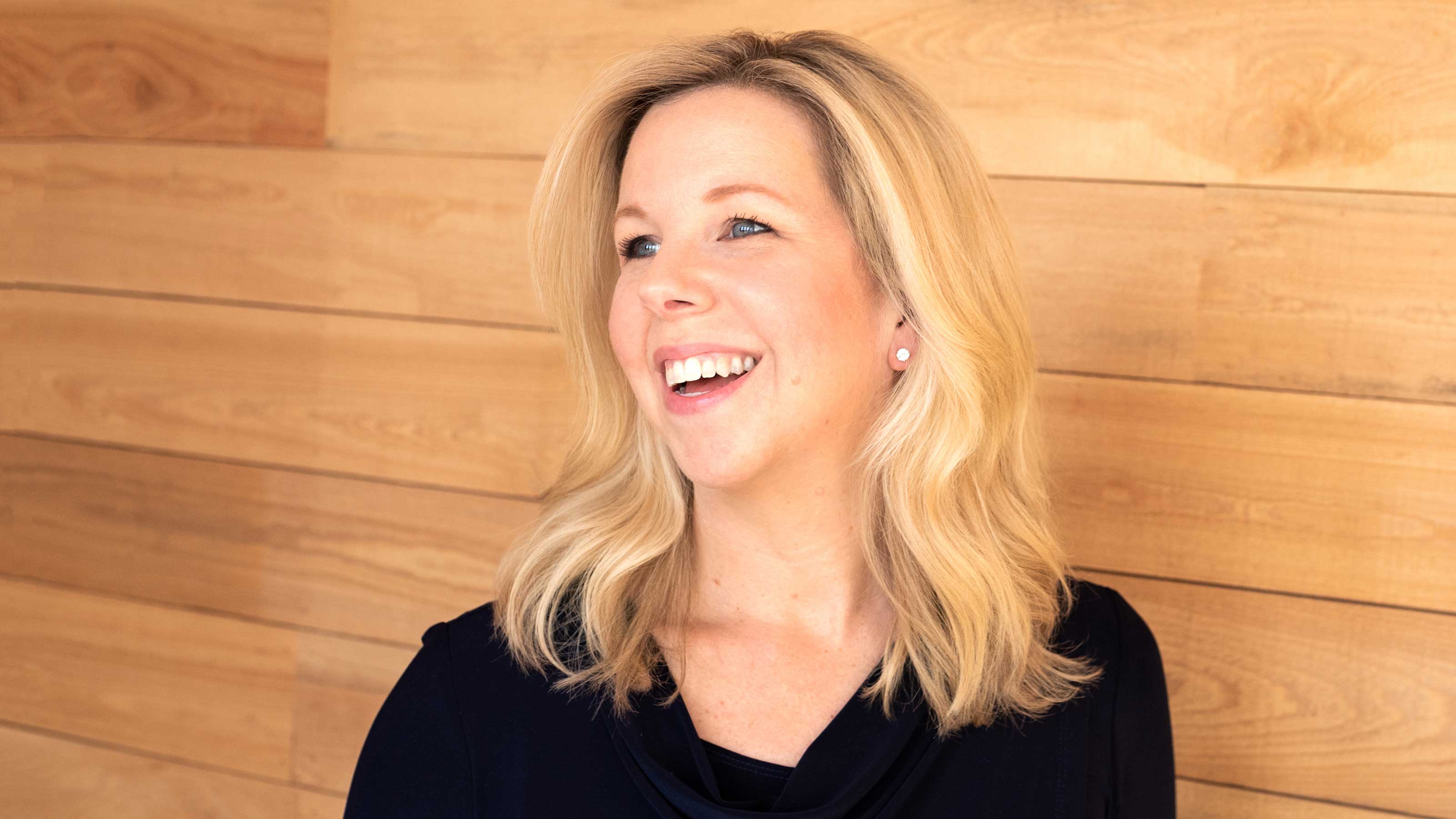The Pros and Cons of Buying an RV in Retirement
RV Dealers Association president Phil Ingrassia joins our "Your Money's Worth" podcast to break down the advantages and pitfalls of owning a recreational vehicle or RV. Also, our hosts Sandy Block and Ryan Ermey answer listener questions.

Profit and prosper with the best of Kiplinger's advice on investing, taxes, retirement, personal finance and much more. Delivered daily. Enter your email in the box and click Sign Me Up.
You are now subscribed
Your newsletter sign-up was successful
Want to add more newsletters?

Delivered daily
Kiplinger Today
Profit and prosper with the best of Kiplinger's advice on investing, taxes, retirement, personal finance and much more delivered daily. Smart money moves start here.

Sent five days a week
Kiplinger A Step Ahead
Get practical help to make better financial decisions in your everyday life, from spending to savings on top deals.

Delivered daily
Kiplinger Closing Bell
Get today's biggest financial and investing headlines delivered to your inbox every day the U.S. stock market is open.

Sent twice a week
Kiplinger Adviser Intel
Financial pros across the country share best practices and fresh tactics to preserve and grow your wealth.

Delivered weekly
Kiplinger Tax Tips
Trim your federal and state tax bills with practical tax-planning and tax-cutting strategies.

Sent twice a week
Kiplinger Retirement Tips
Your twice-a-week guide to planning and enjoying a financially secure and richly rewarding retirement

Sent bimonthly.
Kiplinger Adviser Angle
Insights for advisers, wealth managers and other financial professionals.

Sent twice a week
Kiplinger Investing Weekly
Your twice-a-week roundup of promising stocks, funds, companies and industries you should consider, ones you should avoid, and why.

Sent weekly for six weeks
Kiplinger Invest for Retirement
Your step-by-step six-part series on how to invest for retirement, from devising a successful strategy to exactly which investments to choose.
Ryan Ermey: Whether you're fantasizing about getting away for a couple of weeks or dreaming of a retirement on the road, an RV is seeming like a more and more viable option these days. RV Dealer Association president Phil Ingrassia joins the show for a discussion of the benefits, drawbacks, and costs of RVs in our main segment.
- Episode Length: 00:33:16
- Listen to previous Your Money's Worth episodes
- SUBSCRIBE: Apple Google Play Spotify Overcast RSS
Ryan Ermey: On today's show, Sandy and I tell a listener what to do after an issue that cut her credit limit in half and interest rates -- and the Fyre Festival feature in a new edition of Deal or No Deal. That's all ahead on this episode of Your Money's Worth. Stick around.
Ryan Ermey: Welcome to Your Money's Worth. I'm Kiplinger's associate editor Ryan Ermey joined as always by senior editor Sandy Block. And Sandy, we are recording today, I'm in a familiar situation, which is that a friend has texted me and said, “You write for that financial magazine, don't you have answer for some question I have?” And so the listener in question had her credit card limits slashed in half and was pretty livid about it. She says she puts at least $200 on the card monthly and pays it off in full. And she feels like she's somehow being punished for being financially responsible. She's trying to buy a house and is worried that her credit score may be dinged as a result of this, as well.
From just $107.88 $24.99 for Kiplinger Personal Finance
Become a smarter, better informed investor. Subscribe from just $107.88 $24.99, plus get up to 4 Special Issues

Sign up for Kiplinger’s Free Newsletters
Profit and prosper with the best of expert advice on investing, taxes, retirement, personal finance and more - straight to your e-mail.
Profit and prosper with the best of expert advice - straight to your e-mail.
Ryan Ermey: This is one that I reached out for some help for. I guess the number one thing, Sandy, is the reason that she's concerned about her credit score is this idea of utilization ratio, right?
Sandy Block: Right. If she's in the market for a house, one of the things that lenders will look at is the amount of overall... the ratio of the amount that she's borrowing versus the overall credit that she has access to. So if her credit limit has been cut in half, that's going to hurt her ratio, even though she didn't do anything wrong.
Sandy Block: I think this always comes as a shock to people that credit card issuers do this, but I remember this happening a lot during the Great Recession and it's happening now. It's not because of anything she did, it's because of the economy. It's because lenders are much more risk averse now. They're worried that people are going to lose their jobs and max out on their credit. And we were always shocked when this happens -- especially if, as was the case with this listener, they've done everything right. It's like you're being punished for nothing. The only thing I can say is, you're not alone.
Ryan Ermey: Right. And so, as you say, Sandy, credit card issuers are doing this now in the same way they did during the Great Recession, just because they're trying to reduce their exposure a little bit. Little used cards are a common target for these kind of cuts because they represent some kind of liability for the credit card company. Plus, their credit card's is not making too much money from that kind of card.
Sandy Block: Right.
Ryan Ermey: Same with any kind of account exhibiting some kind of distress. Like if someone's maxing it out or making late payments. Those are kinds of things. Or just having complete inactivity. Those are some kinds of things that make you a target for this kind of thing. But in my friend's case, it was just some bad luck, frankly.
Sandy Block: It's just random, yeah.
Ryan Ermey: I reached out to our friend, friend of the show, Ted Rossman from CreditCards.com and he said that something similar actually happened to him recently. I mean, you're in the same boat as a credit expert, if this happens to you. He said, first thing he did, he called the card issuer and asked them to reinstate the old limit and they did. So that is absolutely worth a shot, especially if you're kind of taking a look at what your credit utilization is. Generally, a good goal is to keep it below 30%, although below 10% is even better. And so if this is something that could possibly affect you, it's absolutely worth asking.
Sandy Block: Certainly if you've been a good customer and they want to keep you. Maybe they just did this across the board, but you call up and say, “Look, I've paid my bills. I'm a good customer. I don't have a lot of debt.” It's definitely worth trying.
Ryan Ermey: Yeah. And it's not out of the realm of possibility on any credit account to call them and ask for a higher limit. Ted says that in more normal times in 2018 that CreditCards.com had found 85% of card holders who asked for a higher limit got one. They're generally happy to give it to you now. And this is something I wasn't aware of -- that you could run into what's called a hard inquiry, which means that someone is taking a look at your credit. And a hard inquiry is the kind that can temporarily lower your score by a few points. And so Ted suggests before officially asking for a higher rate, that you can call customer service to ask if a hard inquiry will happen.
Ryan Ermey: He says last year he asked for higher limits on his American Express, Capital One and Wells Fargo cards and there were no hard inquiries, but he avoid proceeding with Chase who would have in fact done a hard inquiry.
Sandy Block: Right. The difference between... a hard inquiry is what happens when you apply for a new credit card. A soft inquiry is when you get all those solicitations in the mail and maybe they checked your credit before sending you a solicitation. That's called a soft inquiry. That does not hurt your credit score. But a hard inquiry -- and that's why we always tell people -- avoid taking out a bunch of credit cards at one time or taking advantage of a whole bunch of retail back when we were shopping. You know, retail credit cards to get the 10% discount. That can ding your score. So it's important to understand the difference.
Ryan Ermey: Right. And so for my friend, who is possibly trying to finance a home here soon, getting a brand new card certainly isn't a solution in the very short term in terms of lowering her utilization ratio. I think she's more or less fine. She's probably not putting... it doesn't sound like she's putting too much money on the card, unless she's got a very, very low limit. The amount of money, the $200 that she's paying off every month sounds like she's not even going to come close. And so even with the credit limit lowered, it's certainly annoying and it's certainly going to affect her ratio, but she still should have very good credit coming out of this.
Ryan Ermey: Our advice to her... yeah, Ryan and Rianne, go ahead and call Chase. I think she did mention that it was Chase and see what they can do for you. Hopefully, they should be able to raise that back up for you without a hard inquiry. But otherwise, you should still be good and best of luck on the new house, girl.
Sandy Block: Yes!
Ryan Ermey: Coming up, if you're dreaming of retiring in an RV, consider the cost as well as the benefits. Our interview with Phil Ingrassia is next.
Ryan Ermey: We are back. And today, we are talking with Phil Ingrassia. He is the president of the RV Dealers Association. Phil, thank you so much for joining us.
Phil Ingrassia: Happy to be here.
Ryan Ermey: We talked with another colleague of ours recently, and her theory was that the pandemic has sort of re-birthed the great American road trip. Has there been heightened demand for RVs since the COVID-19 pandemic broke out? And how can people go about finding a place to rent or buy one?
Phil Ingrassia: Right. Well, initially there was a lot of people who were looking to use RVs as isolation areas. We had a lot of first responders, medical personnel using RVs when they were coming back from work so that they could have them in their driveway and stay away from their family. That kind of has morphed into more people than ever, trying RV-ing for the first time.
Phil Ingrassia: We've got a survey out this past week that showed like 55%, more than half of the people buying RVs in May through June were first-time buyers. So it's been an interesting spring to say the least, as people have discovered the benefits of RVs travel.
Phil Ingrassia: They kind of check a lot of boxes, right? You can be outside with your family. You can self-isolate in the RV. So you're not with a bunch of other people that aren't related to you. And so it's been a very busy summer as we've seen a lot of people try to find the right travel trailer or motor home for their family as they try to kind of save their summer.
Sandy Block: Phil, even before the pandemic, there was a lot of appeal among retirees for RVs. I assume that hasn't changed. What are the advantages of retiring to an RV and seeing the country, particularly if you're say, you're retired and you're on a fixed income?
Phil Ingrassia: Basically, they can budget in a way where they can figure out, okay, maybe they're selling their house and they're going to travel the country. They can be in the South in the winter time -- snowbird type -- and then come back North. We have a lot of people that do that, but RV-ing is also something that you have to budget for. Certainly, you have to buy the unit and then you've got insurance issues and then you've got campground fees and things like that.
Phil Ingrassia: So it's not exactly a free way to retire, but certainly for people who plan, it can be a very economical way to stretch their retirement savings.
Ryan Ermey: Well, so let's talk a little bit about costs. Let's say I'm one of these people who kind of wants to dip my toes into this lifestyle. I want to take a vacation with the family at a safe social distance. About what would week-long RV rental run me? And consider some costs maybe that people might not always think about. And can I still come out ahead?
Phil Ingrassia: Right. Well, there's a couple different ways to look at it. Certainly, you've got a bunch of different units. So sort of like with hotels, you have different size rooms, you have different size RVs. Typically, your smaller RVs, you can rent for $200 a week on up. Larger RVs, you're getting into the motorized, which can be more expensive and they're larger, as well. So it really varies as far as how much it could cost. It basically depends on the type of RV you're renting. The other cost you have to consider, certainly gas, any additional insurance you might require and then campground fees and things like that.
Phil Ingrassia: Right now, the rental market is very, very tight. It's a supply and demand issue. If you can book further out, your rates are probably going to be a little lower. And the shoulder seasons are typically lower rates as well. And what I mean by that is when school is in session. Basically, the rates are lower in the fall and early winter. But again, it depends on the size of the unit and where you're going to. If you're going to a popular destination, such as Grand Canyon or things like that, the rates can be a little higher there than if you're doing a more Midwest swing on a trip.
Ryan Ermey: What do the tiers look like when it comes to different kinds of RVs? Because I think a lot of people think, "All right, I'm going to retire and I'm going to have the whole 'Meet the Fockers' like gigantic beautiful machine." But obviously, it kind of runs the gamut of different kinds of RVs. And you might want to start with something a little bit smaller to test it out to see if you like it.
Phil Ingrassia: Absolutely. A lot of people think about RVs as motor homes. And certainly that's a very important part of the market. But over the last 20 years, the volume of sales has been driven by the tow-able sector. Basically travel trailers, campers. And so right now, the hot ticket is the entry-level camper that sells between $15,000 and maybe $35,000. And as you guys have probably noticed, the passenger car market has really evolved where people used to have a couple of sedans in the driveway, now they've got an SUV, maybe a light pickup or a crossover. So all those units are potential tow vehicles for the lighter weight RV travel trailers.
Phil Ingrassia: And so this has helped feed the desire for RV travel because people already have a tow vehicle in their driveway. So certainly the larger fifth wheel travel trailers and the motor homes are a big part of the market, big with the retiree and snowbird sector. But right now, the volume is in the entry level family type RVs that people can tow with pretty much what they have in their driveway now if they've got an SUV or crossover or a light pickup truck,
Sandy Block: Phil, if you are interested in actually... maybe you've done the entry level, you're retired and you're interested in buying an RV and doing the whole lifestyle. What should people be thinking about? Do most people pay cash for RVs or is there financing available? Can you lease an RV? I mean, what are your options in terms of ownership?
Phil Ingrassia: Well, most people buy an RV and will finance at least part of it. There are many options for financing. Unlike buying a car, if you go to an RV dealership, they'll say, “Okay...” You've made your selection and you'll talk to them and they'll say, “Okay, do you want to finance it? Are you paying cash? What are you doing?” So you'll go in and RV dealers have access to a lot of different lending sources, just like car dealers do. So you can finance through the dealership. There are also credit union programs and brick-and-mortar banks also have lending programs for RVs, as well. So there's no shortage of financing options if you want to finance the RV, and there's very attractive terms. And because it's something that's not necessarily used every day, you can lengthen the length of your term. So you can stretch it out over 7, 10, 12-year period of time.
Sandy Block: And can you lease an RV?
Phil Ingrassia: Leasing is more of a long-term rental.
Sandy Block: Okay...
Phil Ingrassia: There really aren't leasing programs like you have in the car business where you would turn it in after three years or so many thousands of miles.
Ryan Ermey: Now, I imagine that there's some subset of the RV market who get in because the people are really excited. But they invest in a big piece of machinery like people do with a boat, and the joke for boats is always bust out another thousand, right? It's always comes with costs that you don't necessarily anticipate. Are there some cost associated with RV ownership and travel that the kind of bushy-tailed new buyers don't necessarily always consider?
Phil Ingrassia: Well, certainly when people buy their first RV, they really need to talk to their dealer about the maintenance schedule. I mean, really this is a house on wheels, right? So you've got plumbing systems, you've got electrical system, you've got water systems in there that need attention. Also, you've got a rubber roof on top of the unit, which needs to be serviced every once in a while. So it's not like a car. There are other things in an RV components that you don't have in a vehicle.
Phil Ingrassia: So much like your house, where you'll have somebody take a look at the furnace every season, you still have those kinds of issues with an RV. So people need to consider the maintenance that needs to be done, to keep their RV ready to go when they want to go on vacation. There's nothing worse than you're all ready to go with a family camping, and then something's wrong. So you need to do that maintenance much like you have to do with a home.
Ryan Ermey: Nevertheless, the appeal of the RV is sort of more undeniable than ever.
Ryan Ermey: Phil, we want to thank you again for coming on. Before you go, where can people head to find more information about RVs and about where to possibly be able to procure one in their area?
Phil Ingrassia: There's a great website, GoRVing.com, that has all kinds of information on the RV types and terms that you need to know. It also has links to rental and dealers. So you can find a dealer at GoRVing.com and you can also go to our website, RVDA.org to find a dealer near you.
Ryan Ermey: Fantastic. Well, Phil, thank you so much again for coming on. And until then, I guess we'll see you on the road.
Phil Ingrassia: Thank you.
Sandy Block: Thanks, Phil.
Phil Ingrassia: Bye.
Ryan Ermey: After the break, find out why news about the Fyre Festival had me wondering about deals on used cars. Don't go anywhere.
Ryan Ermey: We are back. And before we go, Sandy and I are parsing, what are deals, what are not. It's Deal or No Deal. And Sandy, I have one that I really enjoyed. Every once in a while, you get one of these things that you just enjoy delving into.
Ryan Ermey: And so news broke this week that the U.S. Marshals Service was auctioning off seized items from the Fyre Festival. Now, for those of us who don't remember, the Fyre Festival was supposed to be a festival targeted toward beautiful young people, young Instagram and social media influencers. They flew them all out to an island, but it ended up being a humongous scam. There was no festival.
Sandy Block: I think everybody got like a cheese sandwich and a...
Ryan Ermey: I mean by cheese sandwich, we mean two pieces of bread and a slice of cheese.
Sandy Block: It's not even good cheese. That's right.
Ryan Ermey: And they were supposed to be paying thousands of dollars for a beach side bungalows. And these people had set up FEMA tents.
Sandy Block: And there were all these supposed to be all these great bands, right? And there were no bands.
Ryan Ermey: It was really an epic disaster and a humongous scam.
Sandy Block: Epic.
Ryan Ermey: And a certain amount of schadenfreude that went into the whole thing that these people thought, these trust fund kids in New York, these club kids who are paying thousands of dollars to fly to the the Bahamas -- this is what they get. They don't, you know.
Sandy Block: That's right.
Ryan Ermey: Anyway, there's two fantastic documentaries, one on Netflix, one on Hulu. Go check those out. I mean, really, really tremendous stuff. So the Marshals Service was auctioning off a lot of their leftover merch that had been seized. So there was like hats and hoodies and t-shirts and wristbands and little tokens that I think you were supposed to be able to use to buy things there, which that obviously didn't really happen. But I'm talking, the hats and shirts are going for like $400 to $500.
Sandy Block: Oh my gosh.
Ryan Ermey: Well look, because people wanted a piece of that...
Sandy Block: Memoranda.
Ryan Ermey: ...that culture.
Sandy Block: Yeah.
Ryan Ermey: It was a really a moment in time. Obviously, I didn't want to buy any of that. But while I was there, there was all sorts of stuff being auctioned off. And I should say folks that as we record today on August 13th, the Fyre Festival stuff is closing today. So by the time you're listening to this...
Sandy Block: You missed it.
Ryan Ermey: If you want to buy Fyre stuff, you can't. But...
Sandy Block: But there's lots of other stuff there.
Ryan Ermey: There was like pool tables and ping pong tables and speaker systems and power tools and jewelry and art. You name it. If these people have seized, they're auctioning it off. I kind of went down this rabbit hole because I thought, “Oh my god, you know, you can find all kinds of amazing stuff.” And what made me really interested was that there was a ton of cars. That really seems to be like the number one thing.
Sandy Block: They seem like drug dealer cars or something like that, yeah.
Ryan Ermey: Right.
Sandy Block: Trick out.
Ryan Ermey:Oh my god, there was one, it was like an Audi that was entirely kind of rainbow, shiny gold painted. Like a gold, but like as if it were like, you know how you have like an oil slick on a wet road and it has that rainbow-y color to it.
Sandy Block: That will stand out in the Walmart parking lot, friends.
Ryan Ermey: I was like, “This looks like Rick Ross's car.” It looks like a rapper's car. Yeah, or it could have been El Chapo's car. It looks like someone with a serious amount of money to blow and who lives in Miami, that kind of vibe.
Sandy Block: Yes.
Ryan Ermey: And so, as someone who hasn't had car a long time, I thought, “Oh my god, this could be an amazing way to get a cheap car.” You just have to live with the fact that someone may have been tied up in the trunk at some point or whatever it is. Or there might have been a lot of heroine in the trunk, but who cares? No skin is off your back.
Ryan Ermey: So I asked our car guy who asked another buddy of his who knows more about these things. And he said that it really depends on who they seized it from. And then from there, you have to really do a deep dive as to the ownership history of any given vehicle, because they are selling them in all of these cases. And there are websites for every different state. I'll put like a clearing house one in the show notes, in case you're interested. But where you can get repo vehicles, Marshals auctioning things off, former decommissioned police vehicles, all kinds of things like that.
Ryan Ermey: So he says a CARFAX history can go a long way, but there are other tools you can use as well. The risk has to do with your ability to perform due diligence. But he said that you can be in for a tuition's worth of money if you don't do proper due diligence, because these places are... they sell the cars as is.
Sandy Block: Right. And I see that you can't return them if you're not happy with your purchase, right?
Ryan Ermey: No.
Sandy Block: That Audi is not going to stay in your driveway.
Ryan Ermey: No. And you just look at these auctions and they say, you know, “Motor running, yes with battery jump.” Like that kind of things.
Sandy Block: Has it been underwater? Not clear.
Ryan Ermey: It's a very sort of cursory kind of thing...
Sandy Block: Yes.
Ryan Ermey: ...as to the history of the car. So this is something that we are probably going to go ahead and give a No deal designation, just because for most people, you really, really have to do your homework, know the Blue Book price, because it's an auction as well. So who knows what you're going to end up paying? You probably think that the people who wholesale these cars professionally probably know what they're worth, what they can get out of them, et cetera.
Ryan Ermey: We do have a story on the website about strategies for buying used cars. And in terms of cars that have had previous owners or a lot of previous owners, we do recommend buying a rental car or at least think that it can be a good deal under certain circumstances.
Ryan Ermey: It turns out people don't drive them as recklessly as the reputation indicates. They're usually pretty careful. But we'll put that up in the show notes and maybe we'll talk about that in another episode to get into more detail about strategies for saving money on buying rental cars. But for now, for most people, if you want to get in on the the Marshals’ auctions and things like that, I will put it up in the show notes in case you're interested in browsing. Maybe you need a new ping pong table.
Sandy Block: Less risk there.
Ryan Ermey: Correct. It's probably something that if you're in the market for a car, you really need to do your homework and it's not going to be a deal for most people.
Sandy Block: Right? And actually, it's a good thing you brought up cars, Ryan because actually mine is a deal. And my deal is that interest rates on everything from mortgages to new cars are at just astonishingly low rates. The average interest rate for 30-year fixed mortgage has been around 3% for weeks. And I know last week we talked about inflation in the ‘80s and ‘90s. Back then, people were paying upwards of 10% on mortgages. This is the lowest it's been since Freddie Mac started tracking rates. That's true for refinancing as well. And I did some, not deep dives, but sort of mid dives this week on some car websites. And on certain select models, you can get 0% financing now or 1.9% financing on a new car because car dealers were in a recession car, dealers are eager to unload some vehicles. So interest rates are really low, and that is definitely a deal.
Sandy Block: The caveat, and we're going to have a story about this in our October issue that I'm working on right now, is that you have to have really good credit for the same reason that we talked about at the top of this show. Lenders are very, very risk averse now. So it's a little... I wouldn't say it's a bait and switch, but it's like going to a store where everything's on sale and they tell you, “Well, you may not be able to buy it.” Unless your credit, your credit history, your credit profile is really good, you're not going to be able to get these rates. And particularly in the housing market. There's a reason for that. One is the inventory of houses is very low and lenders kind of have their choice of who they're going to lend to because a lot of people are in the market. So they're being particular. They're only going to lend to people with really good credit.
Sandy Block: So I think this is a deal if you have good credit. And my advice, and we have a story about this in our October issue as well, is deep dive into your credit reports and make sure it looks great because there are lots of opportunities to save money right now, if you need to borrow for a car, for a house, a refinancing. But you really got to stand out, you got to be a really good candidate to get them. And I worry people are going to be disappointed when they see stories in places about how interest rates on mortgages are at record lows and then find out they can't get one.
Ryan Ermey: How good is good if we're talking about the lowest rates? Because my friend, Rianne, who says that she has a plus 800 credit score, let's go...
Sandy Block: Yeah, she's in there. I mean, if she's looking for a house she's got other hurdles to climb, because as I said, I've been reporting on this just a little bit this week. It's really interesting to me, because we're in the worst recession in history, but people who are working are in pretty good shape. They're not spending very much money, they're making an income. And a lot of those people are looking at houses and I'm just hearing stories about multiple, multiple bids on one house. People getting turned down for loans. So she's got it. She needs to have not just a really good credit score, which it sounds like she has, but she's probably going to have a pretty good down-payment. And she might have to make some concessions on inspections or appraisals or things like that. If she's in D.C., that market is still very, very hot, she should expect multiple offers on any home that she's looking at.
Sandy Block: So she needs to get pre-approved for a mortgage before she goes shopping. And hopefully, she has a good sized down payment. It sounds like her credit is in good shape.
Ryan Ermey: Well, she's in Jersey.
Sandy Block: Oh, Jersey.
Ryan Ermey: But all the advice still applies.
Sandy Block: Yes, totally, yeah.
Ryan Ermey: Rianne, it's been your show. I guess she probably doesn't want to get an RV. She probably tuned out during the middle there. But, otherwise, all the advice that Sandy says, applies to everybody. If you can get yourself onto a lower rate on the lowest possible rate, we always say do that. And of course, shop around.
Sandy Block: Shop around.
Ryan Ermey: And that will just about do it for this episode of Your Money's Worth. For show notes and more great Kiplinger content on the topics we discussed on today's show, visit Kiplinger.com/podcast.
Ryan Ermey: You can stay connected with us on Twitter, Facebook or by e-mailing us at podcast@kiplinger.com. And if you liked the show, please remember to rate, review, and subscribe to Your Money's Worth wherever you get your podcasts. Thanks for listening.
Links and resources mentioned in this episode:
- Banks Canceling Credit Cards, Cutting Limits
- CreditCard.com: My Credit Limit Was (Almost) Cut Without Warning
- 9 Reasons to Retire in an RV
- 13 Reasons You Will Regret an RV in Retirement
- GoRVing.com
- National RV Dealers Association
- Government Auctions and Sales
- How to Safely Buy a Car (for Less!) During COVID-19
- How to Save on a Used Car
- Low Interest Rates Reduce the Cost of Mortgages
Profit and prosper with the best of Kiplinger's advice on investing, taxes, retirement, personal finance and much more. Delivered daily. Enter your email in the box and click Sign Me Up.

Block joined Kiplinger in June 2012 from USA Today, where she was a reporter and personal finance columnist for more than 15 years. Prior to that, she worked for the Akron Beacon-Journal and Dow Jones Newswires. In 1993, she was a Knight-Bagehot fellow in economics and business journalism at the Columbia University Graduate School of Journalism. She has a BA in communications from Bethany College in Bethany, W.Va.
-
 5 Vince Lombardi Quotes Retirees Should Live By
5 Vince Lombardi Quotes Retirees Should Live ByThe iconic football coach's philosophy can help retirees win at the game of life.
-
 The $200,000 Olympic 'Pension' is a Retirement Game-Changer for Team USA
The $200,000 Olympic 'Pension' is a Retirement Game-Changer for Team USAThe donation by financier Ross Stevens is meant to be a "retirement program" for Team USA Olympic and Paralympic athletes.
-
 10 Cheapest Places to Live in Colorado
10 Cheapest Places to Live in ColoradoProperty Tax Looking for a cozy cabin near the slopes? These Colorado counties combine reasonable house prices with the state's lowest property tax bills.
-
 PODCAST: Defusing the Retirement “Tax Bomb” with David McClellan
PODCAST: Defusing the Retirement “Tax Bomb” with David McClellanTax Breaks If you’ve dutifully socked away money in a 401(k) or IRA for years, you could be in for an unpleasant shock when it comes time to take money out of those accounts. Also, the IRS is sending out a surprise round of checks.
-
 PODCAST: The “Gray Resignation” with Liz Windisch
PODCAST: The “Gray Resignation” with Liz WindischMaking Your Money Last Pandemic pressures (and high stock and real estate values) are leading many to try to move up retirement. Plus, tax-filing season gets under way.
-
 PODCAST: The Pros and Cons of Target Date Funds with Tony Drake
PODCAST: The Pros and Cons of Target Date Funds with Tony DrakeFinancial Planning The simplicity of target date funds has made them popular, particularly among 401(k) savers. But investors may be paying a price.
-
 PODCAST: Oh Unlucky Heirs with Tim Steffen
PODCAST: Oh Unlucky Heirs with Tim SteffenFinancial Planning Just because you’re in the will doesn’t mean you’re sitting pretty. Also: Does October deserve its scary reputation for stocks?
-
 PODCAST: The Ins and Outs of IRAs with Ed Slott, CPA
PODCAST: The Ins and Outs of IRAs with Ed Slott, CPARoth IRA Conversions Are you saving for retirement? Good start. But almost everyone has something to learn about optimizing their individual retirement account from IRA strategist Ed Slott. Also, the next round of retirement-planning changes Congress is eyeing.
-
 PODCAST: How Annuities Could Work for You
PODCAST: How Annuities Could Work for YouFinancial Planning No doubt, investing in annuities can be a tough call for the active investor. But there comes a time when relinquishing some control in exchange for reliable income can be a wise move. Also: remembering the biggest financial fraud in history.
-
 PODCAST: Estate-Planning Your Stuff with T. Eric Reich
PODCAST: Estate-Planning Your Stuff with T. Eric ReichEmpty Nesters What to do with the house, the vacation house and the china? We talk with a financial adviser who's got some wise counsel. Also, who makes up the so-called Generation I?
-
 PODCAST: Having the Money Talk with Your Parents, with Cameron Huddleston
PODCAST: Having the Money Talk with Your Parents, with Cameron HuddlestonFinancial Planning for Alzheimer's Managing your parents' finances can be a difficult situation. Doing so if you haven't laid down a plan for how to do it is worse.

